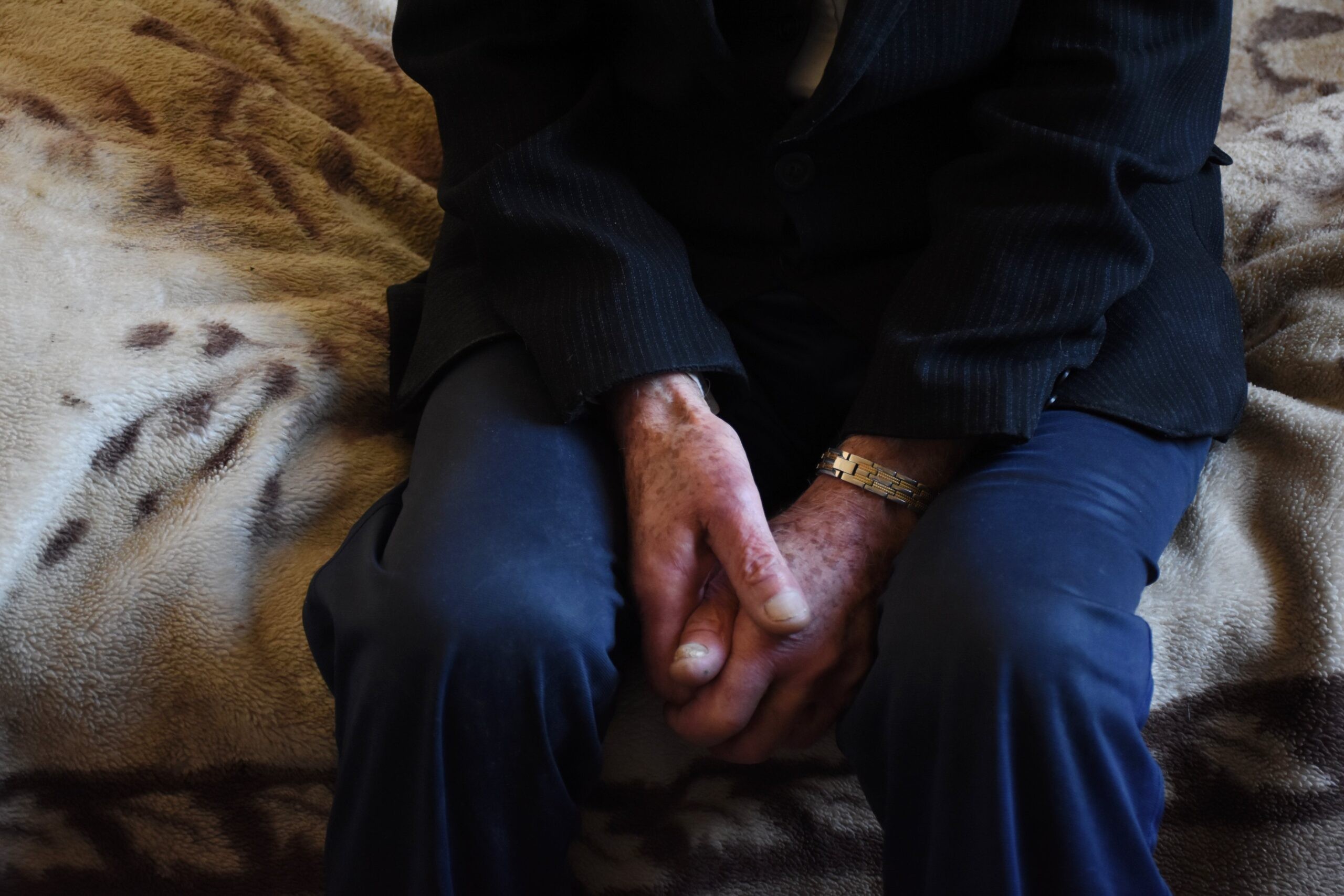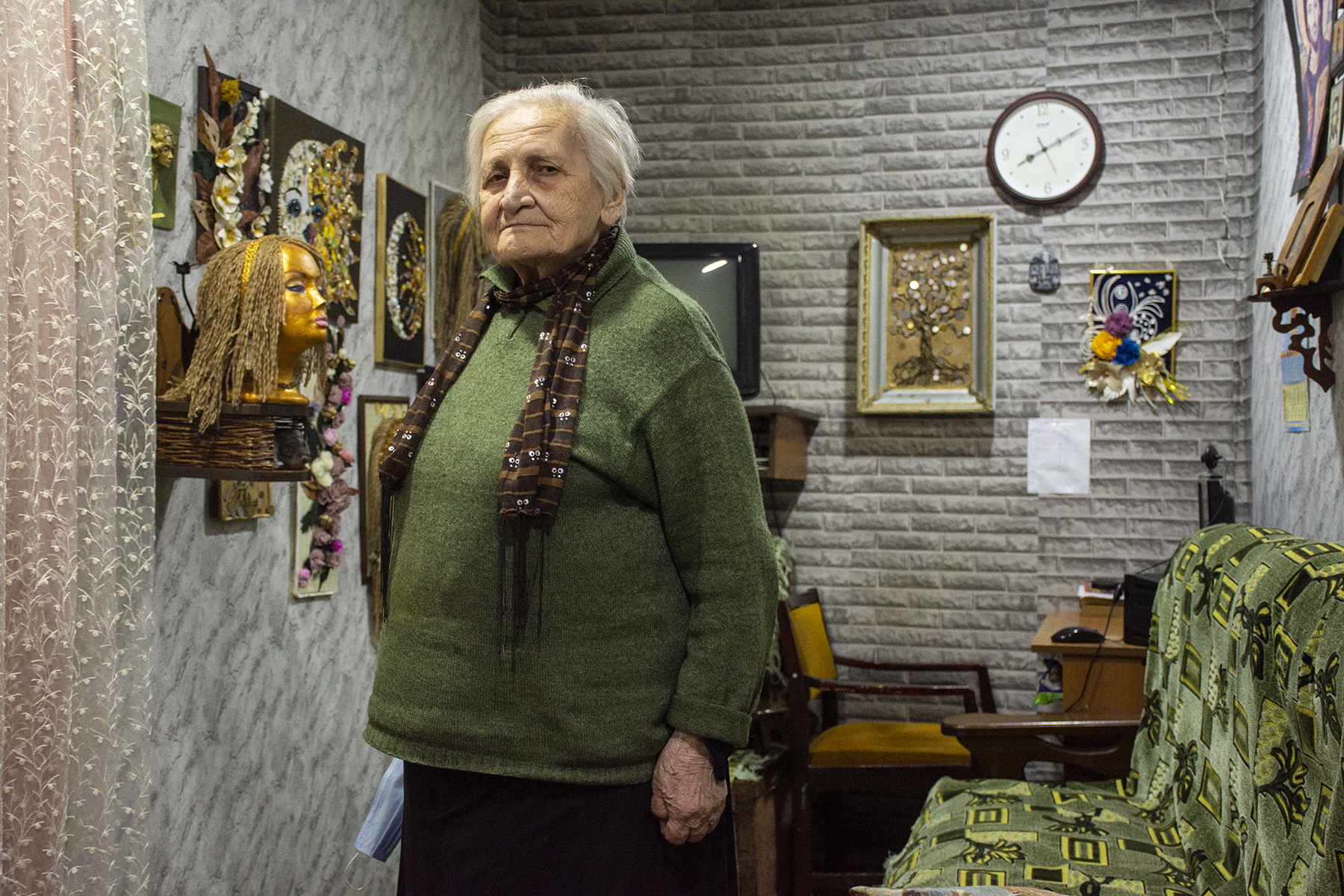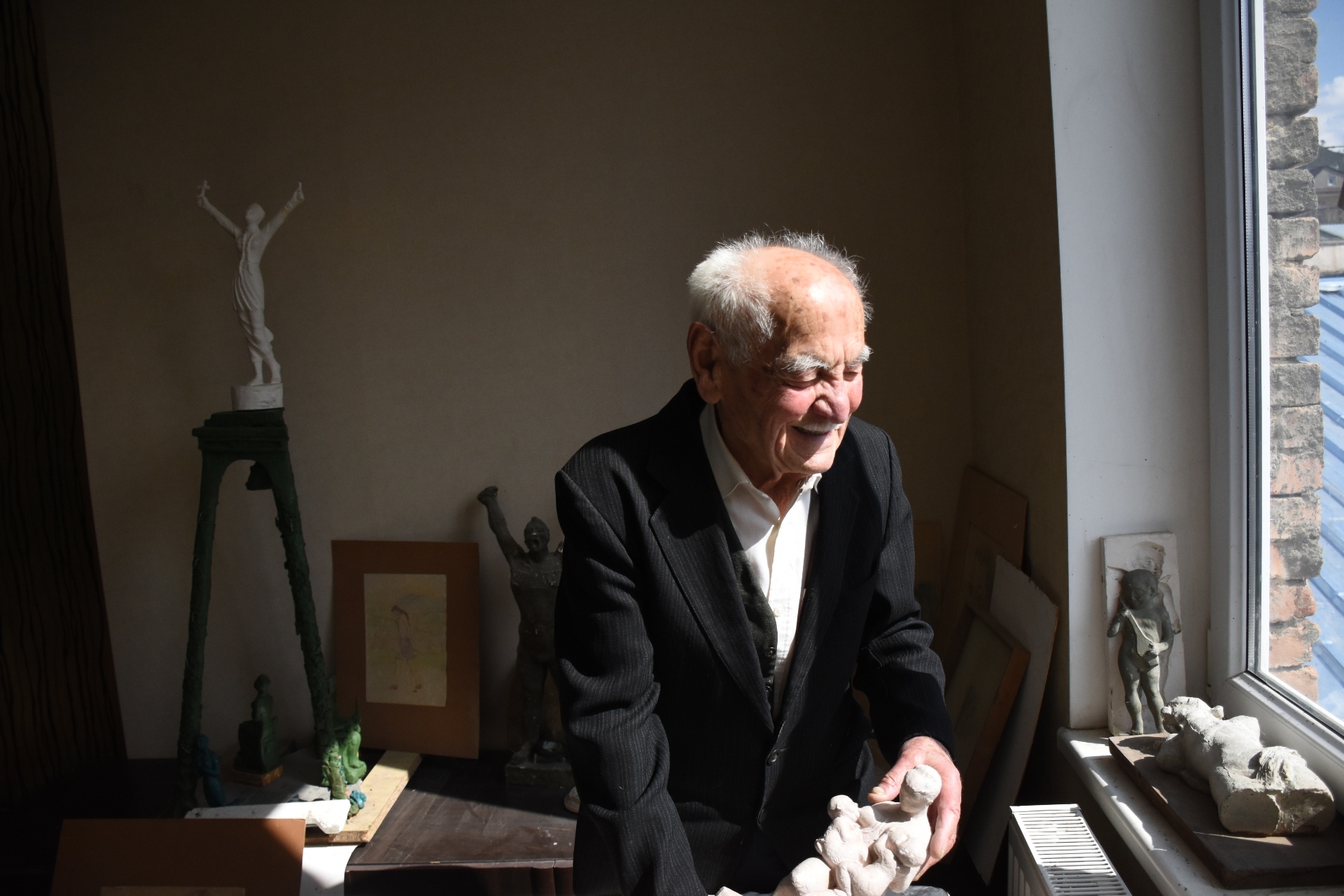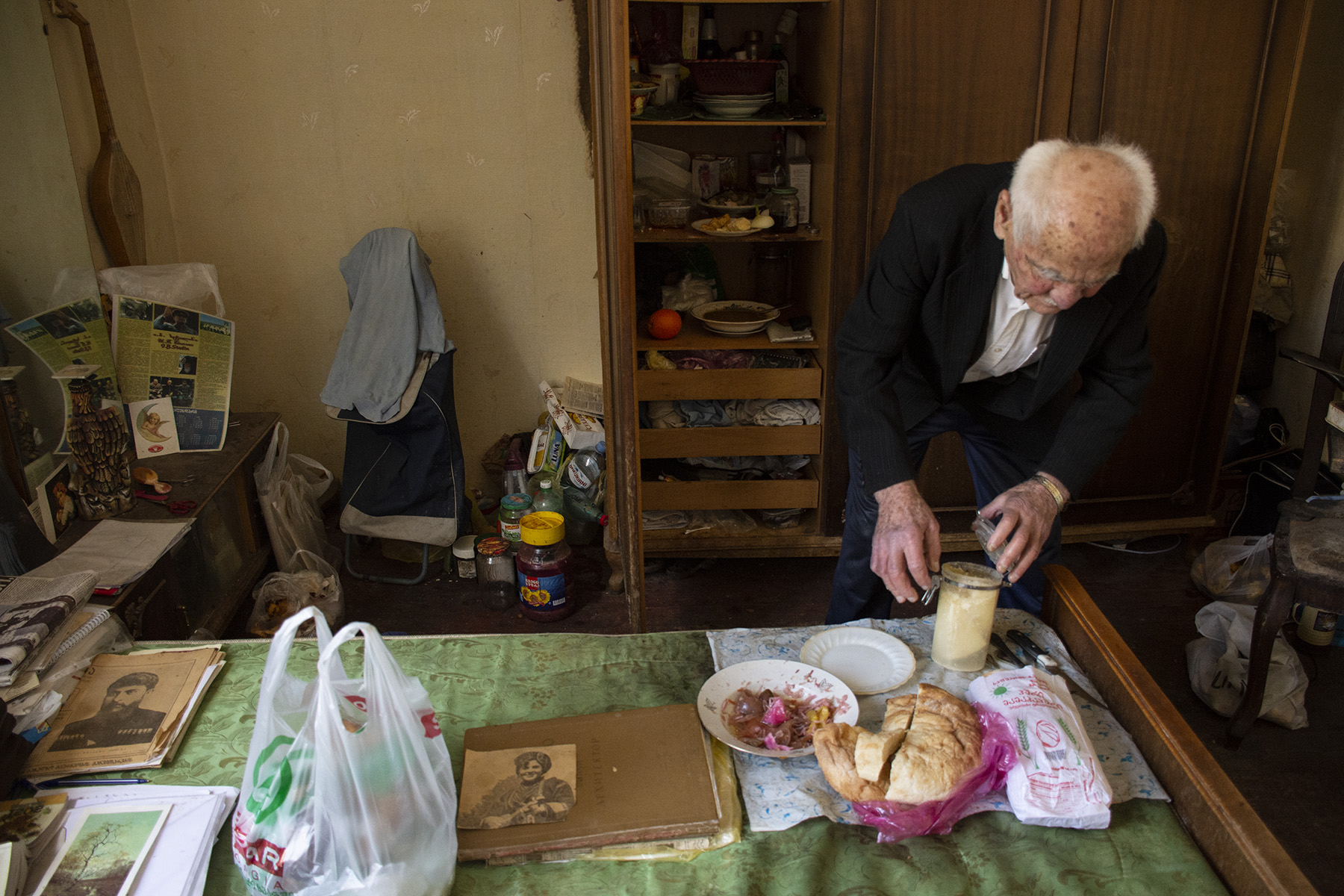
The coronavirus pandemic has been a shock to the Georgian economy, one that has especially affected the elderly. Amidst rising food and medicine prices and little additional assistance from the state, many pensioners’ only hope lies in charity.
During the first and second waves of the coronavirus pandemic, Gulnara Kuratishvili, who previously lived with her grandchildren, was left alone after they left to work in Italy. Closed borders and imposed restrictions did not allow them to return until recently.
‘My family has never left me without attention, and they also help me financially’, Gulnara, 86, tells OC Media. ‘I am sure, if it wasn’t for my family, I would have a lot of [financial] problems.’

Until 2021, the state pension was just over ₾200 ($60) a month. This year, that rose to ₾240 ($72), and ₾275 ($83) for those over 70.
However, the rise has hardly been felt as prices have risen alongside pensions. In 2020, the lari depreciated by around 11% against the dollar.
‘Pensions weren’t high as it was, and during the pandemic things got even worse. The price for bread has increased, for butter and other products too. In other words, it’s a nightmare!’ Gulnara says.
Since the outbreak of the pandemic, the Georgian Government has repeatedly spoken about the difficult situation faced by the elderly. However, the pensioners OC Media spoke with all said they had not received any extra financial help from the government during the entire period.
‘When everything was closed due to the coronavirus and people were asked to stay home, I thought that we [the elderly] would get food, medicines, or something else. But now I think that the pandemic could pass and they still won’t have remembered about us’, says Gulnara.
Tbilisi City Hall told OC Media they did not have programmes to assist the elderly.
‘But we have a programme that ensures each individual over the age of 100 receives a one-time payment of ₾1,000 ($300) from the state’, says Khatuna Avlokhashvili, health and social services spokesperson at Tbilisi City Hall. ‘In addition, World War II veterans also receive financial assistance.’
Left to his fate
Some older people are more fortunate than others. If they have family or others who take care of them, this can solve many problems. However, this is not always the case.
Sandro Khutsurauli, 92, says his family sold his flat 10 years ago, moving him into a small room in their own house with only the most basic conditions.
Once a day, Sandro says, they bring him food or bread, and the rest of the time he spends alone. His only income is his pension, which he tries ‘not to waste’.


Almost 30,000 pensioners in Georgia are classed as among the socially vulnerable segments of the population that have been hit hardest by the coronavirus.
Sandro was deprived of his socially vulnerable status on the grounds that he does not live alone, he says.
‘I tried to restore my status, but every time I was denied. It’s hard to live on a pension. Once every week or two, I have to go to the market and each time I spend ₾50–₾60 ($15–$18), even though I only buy the most necessary products. But you need money for more than just food.’
Sometimes Sandro has to choose between buying food or important medicine.
‘I have three heart illnesses, vision problems; my medicine costs up to ₾400 ($120) every month and my pension is only half as much. I don’t buy it all — I only take medicine for blood pressure, I can’t do without it. Fortunately, it’s not expensive’, he says.
‘Everything I have fits into this wardrobe — although I don’t really have much to put in it…’
It is under these conditions that Sandro, a former lecturer, artist, and sculptor whose works were once exhibited throughout the Soviet Union is spending his twilight years.
Charity comes to the rescue
Charities and private initiatives have filled the gap left by the state and have become the main sources of help for many elderly people. Groups on social media collect a considerable amount of money and basic necessities for those in need.
OC Media spoke with one of the co-founders of the Help the Elderly Facebook group, Mariam Tsertsvadze.
‘Pensioners were the most vulnerable during the pandemic, and in order for them to stay home, we decided to raise money and buy medicines and food for the elderly’, she says.
Elderly people often face difficult, even unbearable living conditions. Tsertsvadze says they even helped to rebuild houses or make repairs with the money raised.
There are similar initiatives throughout the country. Mariam Durglishvili is an activist from Total Courage — Georgia involved in charity work in Kakheti, in eastern Georgia.
‘Those who we helped had only a pension, which is not enough to live’, Durglishvili says. ‘At first we helped 6 families in [the city of] Sagarejo every week, now we support 9 families — three of them are elderly people. Several times we were in Tbilisi when we asked for help, and a couple of times we were in the village of Gombori.’
Catharsis is a charitable organisation that has operated in Georgia for over 30 years. The group operates a shelter and invites elderly people to come to eat or enjoy other services free of charge. Before the pandemic, the organisation had around 470 beneficiaries registered.
Catharsis has become a lifeline for Sandro Khutsurauli, somewhere he can go every day for lunch. However, after lockdown measures came into force, this was also taken away from him.
‘Now, once a month we are sent dry food — rice, buckwheat, sausages, and other non-perishable products. I used to eat every day at Catharsis, but now I can’t even go outside again’, he says.
Since then, restrictions have been gradually eased allowing charities and private initiatives to continue their activities as before.
[Read more: ‘People’s goodwill is my only hope for survival’ — elderly poverty in Georgia]















